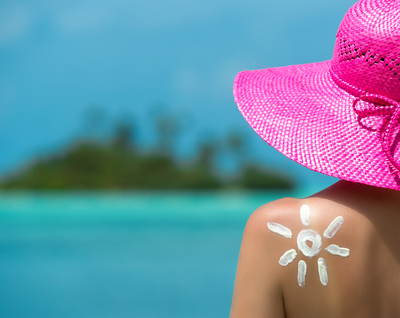Sunburns vs. Sun Poisoning

Summertime is here and you need to be cautious when spending time outside. If you knowingly skip the sunscreen in the hopes of getting a tan, you’re setting yourself up for a sunburn and potentially skin cancer later down the road. Typically, sunburn can merely be uncomfortable with the irritation going away in a matter of days with proper treatment. But imagine spoiling your summer fun with a serious case of sunburn, sun poisoning. Not only will you suffer its painful symptoms, you’re more likely to develop skin cancer.
Sounds like something you’ll dread for the rest of your life, right? Stay out of trouble by learning to distinguish the two forms of burns and be a step ahead in coping a painful encounter with the sun. Here’s the distinction.
What is Sunburn?
Sunburn occurs when the sun’s incident ultraviolet rays damage exposed skin. Anyone can experience this at any time of the year, whether you’re visiting the beach or working in the yard, although the sun’s rays tend to be stronger during summer. Irritation and redness are the most immediate effects of intense sun burn. Within a short while, swelling and breaking of the outer skin will be observed. Usually, this should subside within a few days.
What is Sun Poisoning?
Sun poisoning is a severe type of sunburn that can occur after prolonged exposure to UV rays. While mild sunburn usually subsides on its own within about one week, sun poisoning is a more serious complication that can take several weeks to go away depending on the severity of damage to your skin. From that, you can consider sun poisoning to be an allergic response to extreme amounts of UV rays. This is the reason behind serious additional symptoms to those of sunburn, which might take several weeks to clear. These symptoms include:
- sun rash
- blistering and peeling skin
- nausea
- fever
- dehydration
- dizziness
- muscle aches
Preventing Sunburns and Sun Poisoning
The longer you stay in the sunlight, the more your skin gets damaged. Truly, the best way to avoid sunburn and sun poisoning is to spend less time in the sun. Plan well before venturing outdoors. As you go about your activities, try to minimize your exposure time to UV rays. Make sure to wear a broad spectrum sunscreen, which protects against UVA and UVB rays, with SPF 30 or higher. Reapplying the sunscreen once every two hours will help you stay protected from these harmful rays, especially if you’re sweating or playing in the water.
Always think ‘protective’ when considering your outfit. Many clothing lines offer UPF (Ultraviolet Protection Factor) designed to lessen UV exposure. Hats with wide brim and long-sleeved shirts will block the sun from reaching delicate areas of the body such as the hands, eyes, neck, lips, scalp and ears.
Following prolonged exposure to the sun without protection, make sure to drink plenty of water. Otherwise, consult with a dermatology provider for symptoms that match sun poisoning to decrease the risk of infections or skin cancer.
